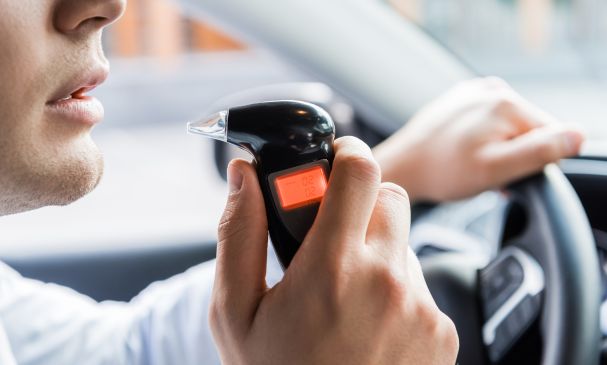Factors That Can Affect a Breathalyzer Reading

When police pull you over and suspect you of driving intoxicated, they will likely ask you to take a breathalyzer test. A breathalyzer is a device used to assess a person’s blood alcohol content (BAC) with a breath sample. The legal limit for a driver’s BAC is 0.08%, and blowing a higher BAC reading is considered to be legally impaired. It is a common misconception that breathalyzers are completely accurate tools for assessing BAC. However, several factors can affect a breathalyzer reading and produce an inaccurate result.
Residual Food or Drinks
Breathalyzers can mistake residual food or alcohol in your mouth as part of your blood alcohol content. This can include alcoholic drinks or food containing alcohol, but it can also include mouthwash and breath spray. It takes between 15 to 20 minutes for residual alcohol in your mouth to dissipate and not affect a breathalyzer reading. That’s why law enforcement must observe a waiting period before administering a breathalyzer test for correct results.
Medications
Another common cause of inaccurate breathalyzer readings is medications. Some prescription and over-the-counter drugs are known to inflate BAC amounts artificially. For example, some cough syrups and cold medicines contain alcohol as a preservative ingredient and can lead to a false positive result. Several asthma medications in inhalers and some toothache gels also contain alcohol and can skew a breathalyzer result if taken shortly beforehand.
Health Conditions
There are a few medical conditions known to affect the alcohol content in a person’s breath, which can affect a breathalyzer reading. A person with type 1 or type 2 diabetes is more likely to have a higher content of acetone when their blood sugar levels are higher than normal. Breathalyzers are incapable of distinguishing between acetone and ethyl alcohol, which leads to a false result.
Those with gastroesophageal acid reflux (GERD) can be impacted by inflated alcohol content in their breath. GERD causes the contents of the stomach to travel up to the esophagus. If someone with GERD drank alcohol before a breathalyzer test, it’s possible more alcohol would be in their breath sample compared to someone without GERD.
Machine or Human Error
Something to always factor into a positive breathalyzer result is a machine or human error. Breathalyzers need calibration after a certain number of uses or every few months, depending on the device. They also require maintenance to ensure their batteries won’t die and their software is functional. Law enforcement should follow protocol for administering a breathalyzer test for accurate results.
Serenity Group can help drivers who have been found guilty of alcohol-related offenses find SR-22 auto insurance after getting their license reinstated. In the future, you will be more knowledgeable about how a breathalyzer works and what affects its results.

Recent Comments